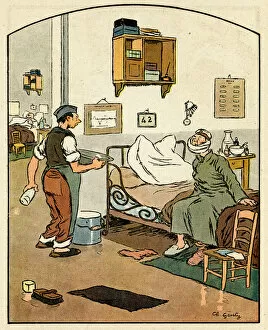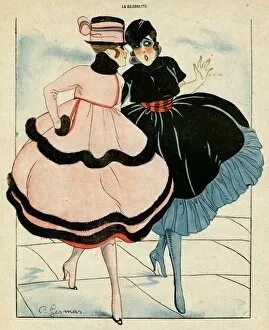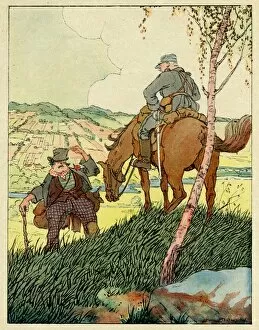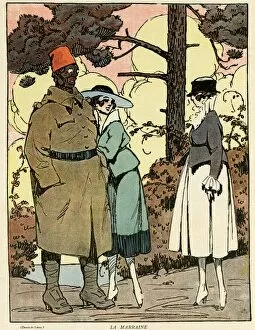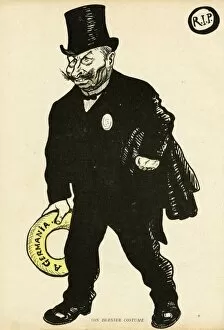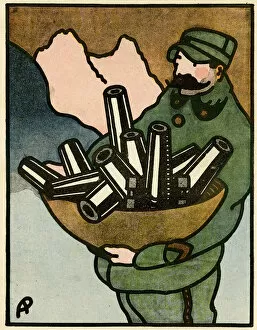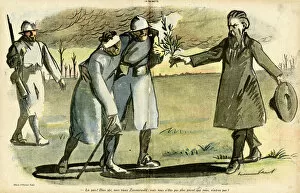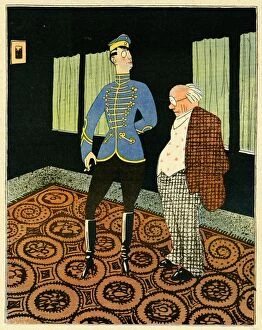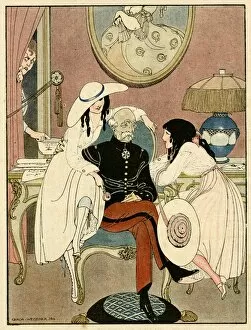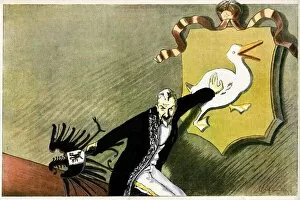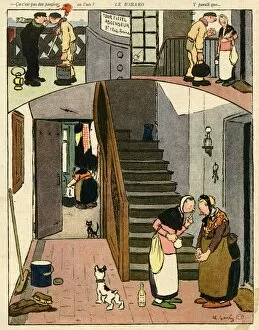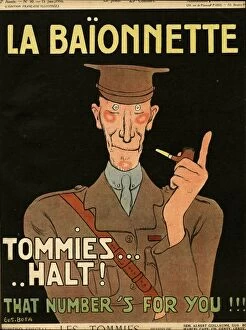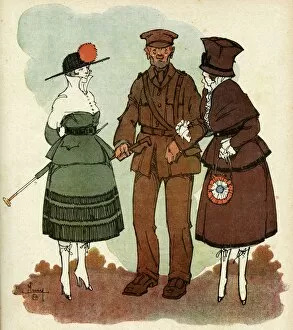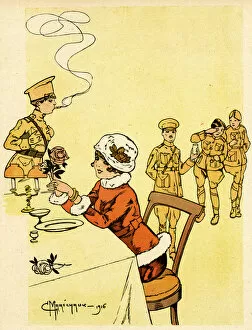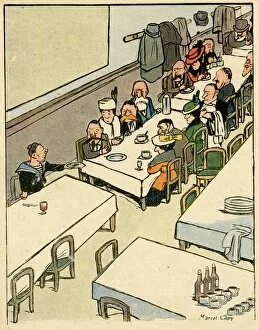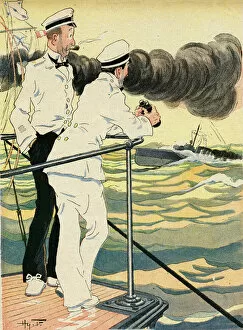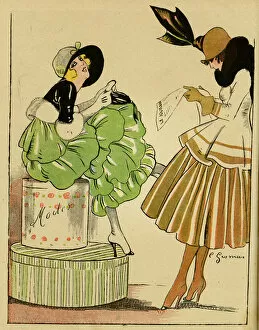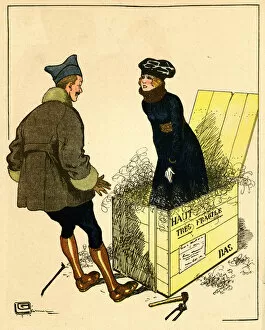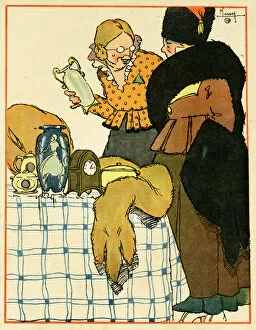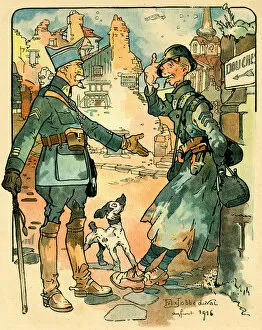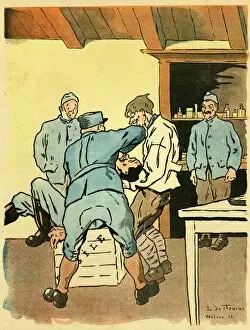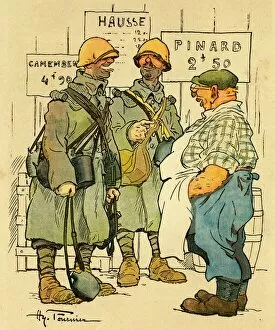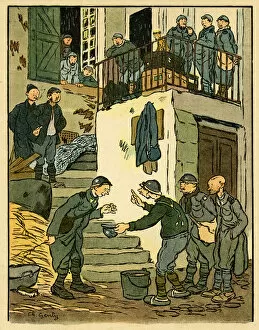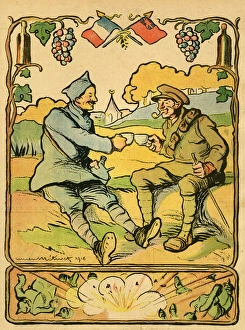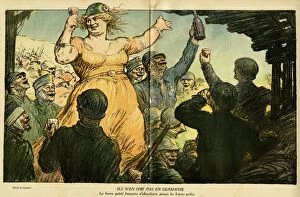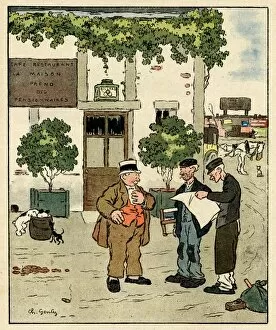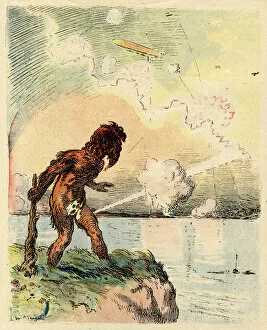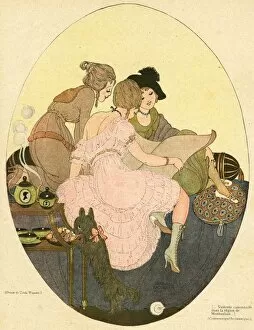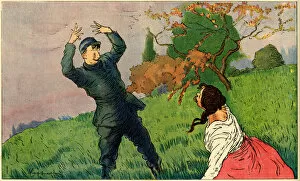Baionnette Collection (#5)
"Baionnette: A Comic Chronicle of WW1" Step into the world of "La Baionnette
For sale as Licensed Images
Choose your image, Select your licence and Download the media
"Baionnette: A Comic Chronicle of WW1" Step into the world of "La Baionnette, " a satirical magazine that captured the essence of World War 1 through its clever cartoons and witty captions. From front covers to hilarious sketches, this publication brought humor to the darkest times. In one cartoon, a waitress juggles plates while soldiers with bayonets march past her. The juxtaposition of everyday life and war highlights the surreal nature of wartime existence. On another front cover, we see Wilhelm II holding a baionnette labeled "16. " This symbolic image represents the power struggle between nations during this tumultuous era. "The Last of the Last Lines" depicts exhausted soldiers standing on an empty battlefield, emphasizing both their resilience and the devastating toll war takes on individuals. "The Merry Widows" cartoon portrays women dressed in black mourning attire, showcasing how war leaves behind countless grieving families who have lost their loved ones. "A Specialist" pokes fun at military bureaucracy as it shows an officer with numerous medals but no practical skills. It reflects the absurdity often found within hierarchical structures during wartime. In "Reckoning without their host, " soldiers are depicted as parasites feeding off a helpless host - society. This biting satire criticizes those who profit from conflict while others suffer its consequences. "Bread and Circuses" illustrates how governments distract citizens from harsh realities by providing superficial entertainment amidst chaos. It questions whether peace can truly be achieved through such means. "Now you have peace" showcases a soldier returning home only to face unemployment and poverty – highlighting that peace does not automatically bring prosperity for all involved in war efforts. The "Kaiser Carnival and his cortege" mocks Kaiser Wilhelm II's extravagant lifestyle amid widespread suffering caused by his decisions. It exposes leaders' detachment from reality during times of crisis. Finally, "A good idea" presents a humorous take on innovative weaponry development during WW1.


